So, I was messing around with a handful of wallets the other day, and man, the fragmentation in crypto ecosystems still blows my mind. Seriously? You have to jump from one app to another just to handle different chains? That’s a nightmare for anyone trying to keep their portfolio sane.
Here’s the thing. Multi-chain support isn’t just a fancy buzzword anymore. It’s becoming a must-have feature, especially for users like me who dabble in Ethereum, Binance Smart Chain, and some of those niche DeFi chains popping up outta nowhere. At first, I thought, “Well, can’t I just stick to one chain and be done with it?” But nah, that’s not how the DeFi cookie crumbles.
Because the truth is, some protocols and opportunities are just on specific chains. Missing out on those means leaving value on the table. And juggling multiple wallets? Forget about it—it’s a pain, and honestly, risky if you’re not careful.
Oh, and by the way, managing your portfolio across chains is a headache without solid tracking tools. I’ve seen people lose track of assets that were literally sitting idle because their wallet didn’t support a chain or token type.
Wow! That’s a big deal when you consider the fast-moving nature of DeFi.
Now, diving deeper, I started exploring wallets that claim multi-chain compatibility. Initially, I thought they all really meant it—one wallet to rule them all. But then I ran into some serious gaps. Like, some wallets support major chains but flop on newer ones or lack seamless integration with DeFi protocols. It’s like they’re only half baked.
Take portfolio tracking, for instance. You might have assets scattered across Ethereum, Polygon, and Avalanche. Without a unified dashboard, you’re basically piecing together your holdings manually or relying on clunky third-party apps. Not fun.
My instinct said, “There’s gotta be a better way.” And that’s when I stumbled upon the okx wallet extension. At first glance, it looked promising—multi-chain support, integrated portfolio tracking, plus direct access to DeFi protocols.
But hold on, I wasn’t sold yet. Wallets tend to overpromise. So I spent some time digging in, testing transactions, and exploring their DeFi integrations. What I found was pretty impressive. The extension not only supports major chains but also offers a smooth way to monitor your portfolio without hopping between apps.
Hmm… this felt different. The user interface was clean, and switching between chains was almost seamless. Plus, the DeFi access meant I wasn’t just holding assets passively; I could actively manage them through staking and yield farming right from the wallet.
Okay, so check this out—this kind of all-in-one approach is something I believe will define the next wave of crypto wallets. Instead of a scattered experience, users get a centralized hub that respects the decentralized nature of blockchain networks.
Here’s what bugs me about some wallets out there: they support many chains but don’t update fast enough to integrate new DeFi protocols or tokens. You end up with a wallet that’s multi-chain in theory but limited in practice. That’s frustrating, especially when the crypto space moves so damn quickly.
With the okx wallet extension, updates seemed more frequent. That gave me confidence that it’s not just a static product but one that evolves with the ecosystem. Plus, for browser users like me, having this as a handy extension means less toggling between devices or apps.
And let me be honest, I’m biased towards anything that reduces friction in crypto management. The more seamless the experience, the more likely users stick around and explore advanced DeFi strategies.
Yet, I still wonder about security. Multi-chain wallets have a bigger attack surface, right? One compromise could expose assets across chains. Initially, I was skeptical about extensions handling that much. But after reviewing the security model of the okx wallet extension, including key management and permission controls, it eased some of my concerns.
That said, nothing’s perfect. I’m not 100% sure how robust it is against zero-day exploits or phishing attacks, but they seem to be on top of regular audits. On one hand, centralized exchanges have big security teams, but on the other, decentralized wallets rely heavily on users being careful.
Anyway, it’s a tradeoff we all face as crypto users. Convenience versus security. The trick is finding that sweet spot.

Back to portfolio tracking—this part really made me think. Most wallets just show token balances, but DeFi positions are trickier. You might have liquidity pool shares, staked tokens, or pending rewards. Without native support, you’re left piecing that info from different sources.
The okx wallet extension integrates with DeFi protocols so you can see your staked assets and yield farming positions in one place. That’s huge because it turns your wallet into a real portfolio manager, not just a storage tool.
And here’s a little personal anecdote: I once missed a staking reward because my wallet didn’t notify me about it, and that sucked. With real-time DeFi tracking, you avoid those surprises.
Now, I know some folks prefer mobile wallets or hardware wallets for security reasons. I’m with you there. But browser extensions like this one hit a nice balance of accessibility and security for everyday use, especially if you’re actively trading or using DeFi.
So, summing up my experience without sounding like a sales pitch—multi-chain support combined with portfolio tracking and DeFi integration is no longer optional. It’s essential for anyone serious about crypto.
If you’re on the hunt for a wallet that ticks these boxes, the okx wallet extension deserves a look. It’s not perfect, but it’s close to what users really need in 2024.
I’m curious to see how they’ll keep evolving it. Hopefully, they listen to the community and keep that momentum going.
